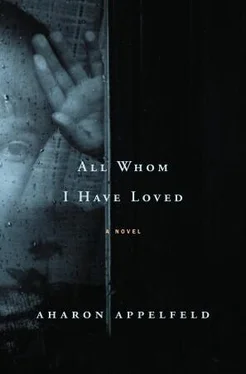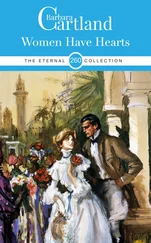We sat on the suitcase and waited for the crush to subside. I pictured the fields and the water that we had left behind, and longing choked me.
While we were sitting there hopelessly, Father appeared, as if the ground had split open and he'd emerged from it. He was wearing his usual clothes, but he looked so different here, as if he were a stranger. He immediately grasped the suitcase and led us outside through a dark opening. A carriage was waiting for us. Even now, Father behaved as he always did. He asked no questions. When we reached the house, he pulled down the suitcase, carried it up to the apartment, and said, “I'll come tomorrow.” Then he was gone.
Mother had brought a few provisions from the country, and we sat down to eat. Her face was still tan from the country, but its freshness had faded. She tried to recall sights we had seen, but there was a hollow ring to her words.
Then, for no apparent reason, she began to cry. It was a bitter weeping that left her face blotchy. I fell at her feet, hugging her legs. Yet this time my love did not help. Her crying only intensified, as if drawing upon the depths of her hidden pain. I was so moved that when I went to bed I could not fall asleep. It then seemed to me that Mother was about to say, “I'm going to pack the suitcase, we're going back to the country. I feel out of place in this crowded city; everything is dirty and tasteless.” But I was wrong; her sorrow passed and little by little she accepted our old place.
That same night Mother told me about her childhood. Her parents died young and she had grown up in an orphanage. The orphanage is at the edge of the town, near the trees and water. When she was nine, her class was taken to the city, and there she saw the Great Synagogue for the first time.
“And you didn't have any brothers or sisters?”
“No, I'm an only child,” she said with a shy laugh.
At the age of twelve she was already an apprentice at the large garment workshop owned by the Stein family. She worked from morning till night, and in the evenings she studied. Eventually, she passed the matriculation examinations with low grades, but she graduated from the teachers' seminary with distinction.
“And do you remember your mother?”
“No. A few years ago, I could still remember some of her features, but now they're gone. I remember that she was short.”
“And was your father tall?”
“I don't remember. He died before my mother.”
Mother opened her eyes very wide, so as to take in the distant visions, but it didn't help. To my questions she answered, “I don't remember; what I recall is so hazy.”
I, at any rate, could imagine my mother's mother and father very clearly.
“I'm sorry, everything has faded from my memory,” Mother said, shrugging.
“I will remember the house in the country and the water in the river. And the lake,” I said for some reason.
“And me? Will you remember me, too?” she asked, suddenly putting me to the test.
“I'll remember you most of all.” I wanted to impress her.
“How will you remember me?”
“Swimming in the water.”
“Only swimming?”
“And wrapped in a large towel.”
“What else?”
“And the song ‘The Long Clear Nights of Summer’—the song you like to sing.”
“I'm happy.”
That night I slept soundly, but one clear image filtered into my sleep: Mother wearing a pure white nightdress.
Father came the next day and took me downtown. A month and a half in the country had effaced him from my memory. Father took long strides and I hopped along after him, getting tired. We stopped briefly, standing at a kiosk to drink some lemonade, and eventually we reached a café where Father loves to play chess. I find it hard to take his silence. It hurts me, and yet I still said, “Father,” trying to be closer to him.
“What?” He opened his eyes, as if I'd stopped the flow of his thoughts.
Father played chess and I gazed at him. This time he opened his mouth and spoke, hummed, and leaned toward his opponent in a gesture of goodwill.
“Where have you been, child?” Father's elderly friend turned to me.
“In the country with Mother.”
“And how was it there?”
“Good.”
Father raised his head and smiled, happy that I revealed something to him that he would never have asked about.
“Paul knows his multiplication tables very well; you can test him,” Father said.
“Seven times seven is what?”
I answered.
“I see that you're going to be even better than your father,” said the elderly man without even looking at me.
We walked a lot that evening, and we also went to the tavern. Father's mood improved and he hummed a folk song, keeping time with his foot. Before I went into the house, he told me that the following week, when he got his salary, he would buy me a pair of high, laced boots.
The parting from Father was not hard, and yet it was not forgotten easily. The sight of his face did not leave me even when I sat next to the table and Mother gazed at me. Once, I said to my mother, “I love Father,” and Mother's response was not slow in coming: “And don't you love me?” Since then I have chosen my words very carefully.
That night Mother told me that after I had left the house, a messenger delivered a letter to her with the news that she had been accepted as a teacher in a primary school in Storozynetz.
“Are we going there?”
“Of course.”
Only later did I understand that this was not really about a journey so much as it was about being pulled away from everything I knew, and then a dark fear gripped me. That night my mother told me a lot about Storozynetz and about the beautiful fields that surround the small city. It was that night that I heard the phrase “garden city” for the first time, and it stuck in my head.
The next day Father came in the afternoon. The sun was still shining, and we went for a walk by the river. On the way we met a man dressed in black who was carrying a suitcase. The man turned to my father and asked him something. Father answered in a language that I did not understand. Then the man opened the suitcase and showed Father what he was selling, and Father chose two pencils and paid him. They talked, or, rather, the man talked, and he sounded as if he was complaining. Father, in his usual way, said only a word or two. For a moment the face of the man wrinkled up and it seemed that he was about to burst into tears. I was wrong: he burst out laughing, and Father did, too. His face opened momentarily as a smile emerged from his eyes. The man did not stop but continued talking, and Father laughed heartily.
“Who's the man?” I asked only when we had gone some distance from him.
“A Jewish peddler.”
“What is a Jewish peddler?”
Father smiled as if I had embarrassed him, and said, “A peddler that belongs to the Jewish people.”
“Is it a large people?”
“Not really.”
“And everyone wears black?”
“No.”
Then we went into a tavern. Father gulped down a small shot glass, flirted with the waitress, and complimented her. The waitress did not blush. It was obvious she was used to compliments. After the tavern we went straight home, and Father uttered not a word the entire way.
Mother is packing feverishly. It's hard to know if she's happy. The apartment is very small, but it has a window that faces the park. In the afternoons, elderly people from the old-age home sit in the park. I stand at the window and gaze at them, and the more I gaze at them, the more I feel that their thoughts touch my thoughts.
Father doesn't come. I wait for him every afternoon. He is sick and is away. His absence, like his silence, pains me, and for tense hours I wait for him.
Читать дальше












